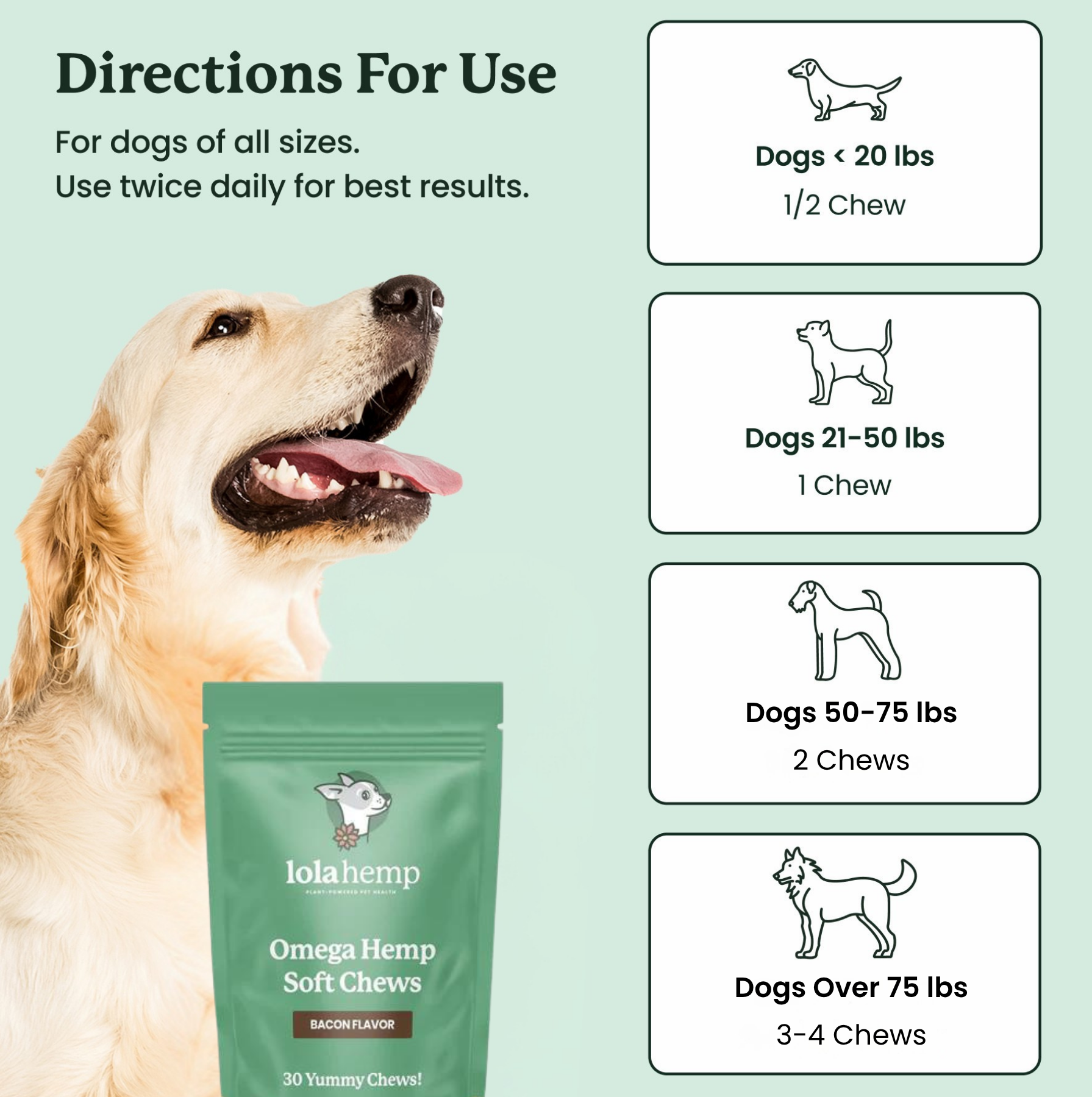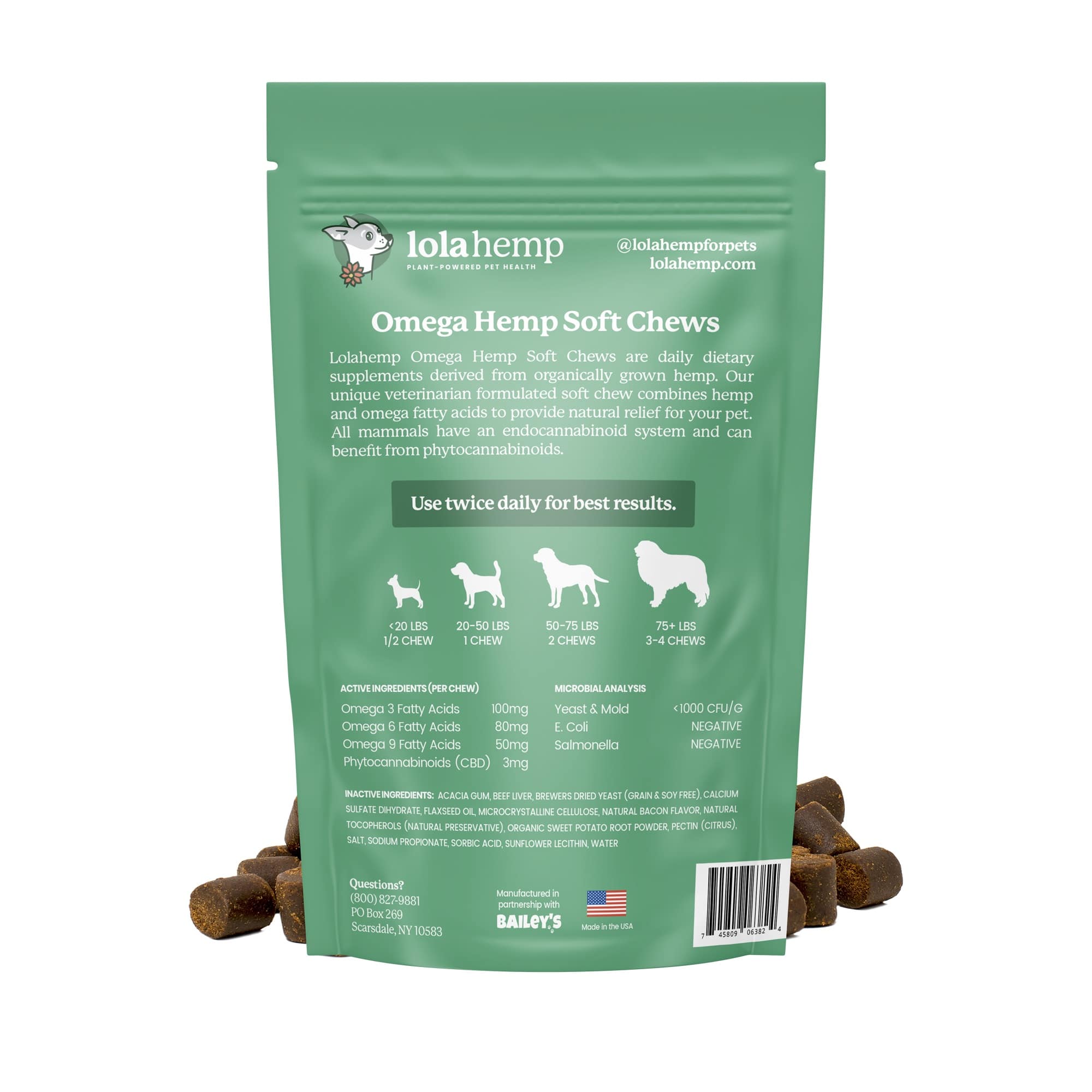When your dog needs treatment for a health issue, it's natural to want the best for them. Prednisone is a common prescription drug used in veterinary medicine to reduce inflammation and support dogs with arthritis.
This article aims to provide a brief but comprehensive guide on prednisone for dogs. We'll discuss prednisone's uses, side effects, drug interactions, and potential natural alternatives.
- What is Prednisone for in Dogs?
- How Does Prednisone Reduce Your Dog's Inflammatory Issues?
- Is It Possible for Dogs to Overdose on Prednisone?
- Can Dogs Take Prednisone for a Long Time?
- What are The Side Effects?
- Alternative Treatments
- Tips for Helping Dogs Taking Prednisone
- Discussing Prednisone with Your Vet
- Conclusion
- Prednisone for Dogs: Frequently Asked Questions
What is Prednisone for in Dogs?
Prednisone is a prescription corticosteroid medication. It is chemically similar to cortisol, which is produced in your dog's body. Generally, prednisone works by reducing inflammation or replacing natural steroid hormones. Prednisone is used in both people and animals.
Prednisone is a versatile medication. It is used in veterinary medicine to treat a variety of health conditions in dogs, either alone or in combination with other drugs.
Generally, prednisone is used to manage allergies, inflammatory skin diseases, arthritis, autoimmune disorders, and other conditions. It can also treat certain hormonal imbalances like Addison's disease.
Prednisone Vs. Prednisolone for dogs
Prednisone and prednisolone are often used to treat similar health conditions. They're different but related medications. Prednisone is a prodrug that the liver must metabolize before it can have a therapeutic effect on the body.
In contrast, prednisolone is the active metabolite of prednisone. Prednisolone can be a better choice for dogs with liver problems. It is also used in cats since they can't metabolize prednisone properly.
Not all of these medications are the same, or even similar, and many common options are unsafe for dogs so it's important to run every decision by your veterinarian.

How Does Prednisone Reduce Your Dog's Inflammatory Issues?
Prednisone and prednisolone are both steroid hormones. They bind to glucocorticoid receptors in cells throughout your dog's body, and the effects are specific to each organ. Prednisone's effects also depend on the dosage.
At lower doses, prednisone has general anti-inflammatory effects. At higher doses, it can suppress the immune system, which can be helpful in treating autoimmune diseases and certain types of cancer.
Your veterinarian will determine the appropriate prednisone dosage for your dog. The right dose of prednisone will depend on the health condition to be treated, your dog's weight, and other factors. Prednisone dosages will generally be lower for inflammatory diseases and higher for cancer and autoimmune disorders, but each dog's needs are unique.
Is It Possible for Dogs to Overdose on Prednisone?
Prednisone overdose in dogs is unlikely if you follow your veterinarian's dosage instructions carefully. However, it could happen if your dog gets into the medicine cabinet or through a dosing mistake. Signs of prednisone overdose in dogs might include vomiting with or without blood, diarrhea, decreased appetite, and bloody or tar-like black stools.
If you suspect a prednisone overdose, immediately contact your veterinarian or an animal poison control center. Reputable poison control helplines include:
- Pet Poison Helpline
- ASPCA Animal Poison Control
Consultation fees may apply for helpline services.
Can Dogs Take Prednisone for a Long Time?
Most veterinarians prescribe prednisone for a limited time — usually only a few weeks — to minimize the risk of serious side effects. However, some dogs with severe health conditions may require long-term prednisone treatment.
In this case, your vet will discuss potential risks and list adverse signs to watch for. They may also suggest strategies to reduce the risk of serious problems with long-term prednisone use, such as every-other-day dosing.
What are The Side Effects?
Prednisone can cause short and long-term side effects.
The most common side effects of prednisone include:
- Increased thirst
- Increased urination/house accidents
- Panting
- Increased appetite
- Lethargy
- Stomach upset
Examples of more serious prednisone side effects in dogs include:
- Delayed wound healing
- Hair loss (alopecia)
- Weight gain
- Black, tar-like stools
- Muscle loss and weakness (atrophy)
- Pot-bellied appearance
- Tar-like stools are suggestive of severe ulcers in the stomach or intestinal tract. (This side effect is uncommon but serious and can be life-threatening if left untreated.)
Risks & Possible Complications of Prednisone
Prednisone and prednisolone may not be suitable for dogs with certain medical conditions. Your veterinarian may not prescribe prednisone if your dog also has one of the following conditions:
- Viral or fungal infection
- Cushing's disease
- Stomach ulcers
- Allergy to prednisone or prednisolone
In these cases, your veterinarian will develop an effective alternative treatment regimen to replace prednisone or prednisolone.
Prednisone can interact with a variety of other medications, including other steroids, hormones, NSAIDs, heart medications, seizure medications, certain antibiotics, and others. Prednisone and prednisolone can also affect how well vaccines work and increase insulin requirements in dogs with diabetes.
Therefore, always inform your veterinarian about all drugs, supplements, and vitamins your dog is taking.
Alternative Treatments
Prednisone is a widely used drug in veterinary medicine. However, a different therapy may be required if your dog takes medications that interact with prednisone. Alternative treatments to prednisone will depend on the condition for which your dog is being treated.
Alternative options may include immunosuppressants, topical corticosteroids, antihistamines, Cytopoint, and other drugs.
Tips for Helping Dogs Taking Prednisone
If your dog is on prednisone, you might notice an increased thirst and appetite. Provide frequent outdoor breaks and never restrict water access, even your dog's intake seems excessive.
Prednisone can also cause weight gain, so managing your dog's diet and exercise appropriately is important.

Discussing Prednisone with Your Vet
Before starting your dog on prednisone, thoroughly discuss the potential benefits and risks with your vet. Be open about your dog's health history, medications, and supplement regimen to prevent interactions and side effects.
Ask your vet for clear examples of adverse effects to watch for, and report any similar changes you see in your dog right away.
Conclusion
Prednisone can be a very effective medication for treating inflammatory and immune-related health conditions in dogs. However, it's crucial to follow your veterinarian's instructions, monitor for side effects, and maintain regular check-ups.
By taking these steps, you can ensure that prednisone is a safe and effective part of your dog's treatment plan.
Prednisone for Dogs: Frequently Asked Questions
What is prednisone used for in dogs?
Prednisone is used to treat inflammation, allergies, autoimmune disorders, arthritis, skin conditions, and hormonal issues like Addison’s disease.
How long can a dog safely stay on prednisone?
Short-term use is most common, but some dogs may need long-term treatment under close veterinary supervision to avoid serious complications.
What side effects should I watch for while my dog is taking prednisone?
Common effects include thirst, urination, panting, appetite increase, lethargy, and stomach upset. Severe effects may include ulcers, muscle loss, or weight gain.
Can prednisone interact with other medications my dog is taking?
Yes. Prednisone interacts with NSAIDs, antibiotics, seizure meds, heart meds, vaccines, and other steroids. Always tell your vet about all medications and supplements.
Are there natural alternatives to prednisone for dogs?
Alternatives depend on the condition but may include antihistamines, Cytopoint, immunosuppressants, topical steroids, or natural remedies like CBD oil.










Comment
This was a very good article. The only point not mentioned is how to wean off of Prednisone which is super important. It has to be done very very slowly.